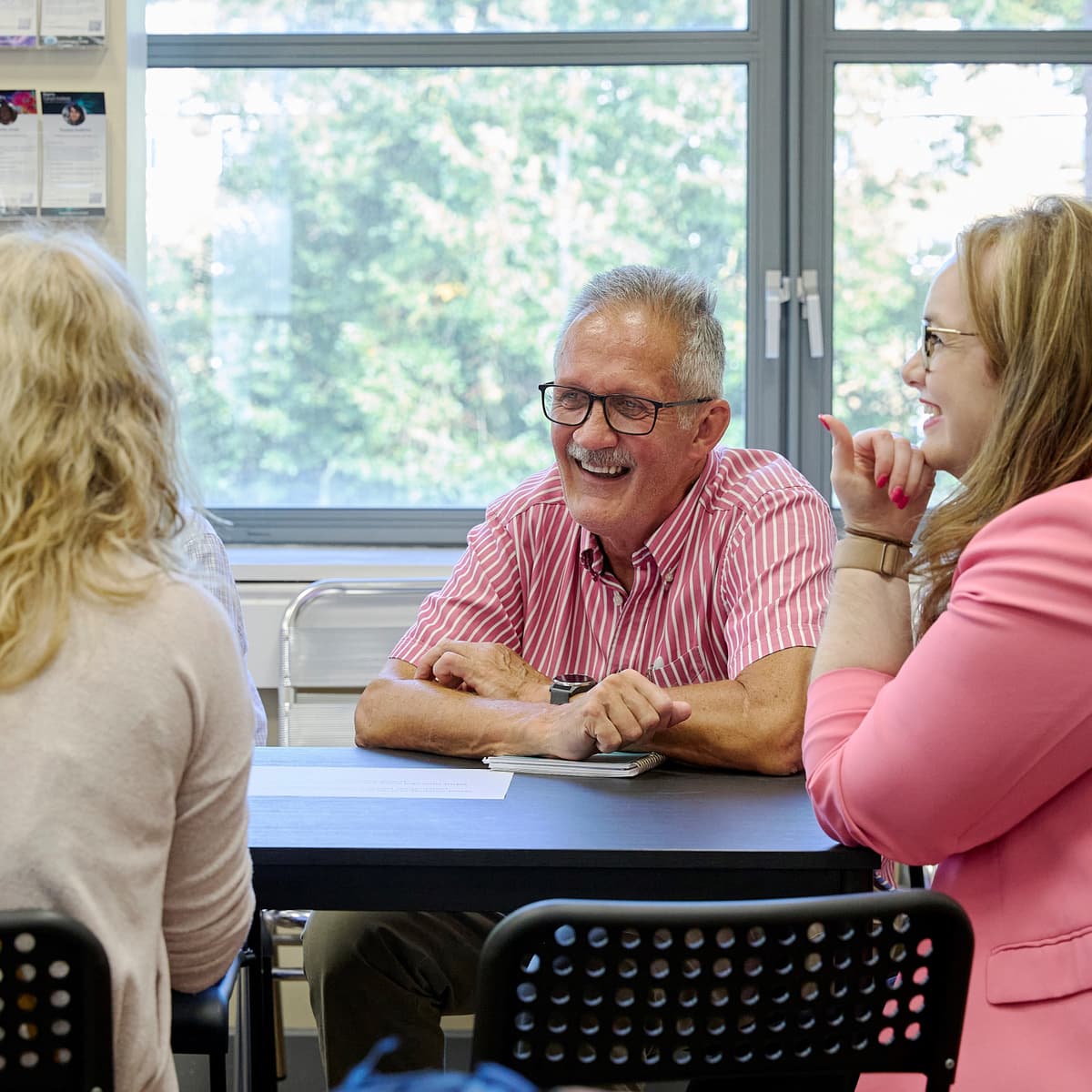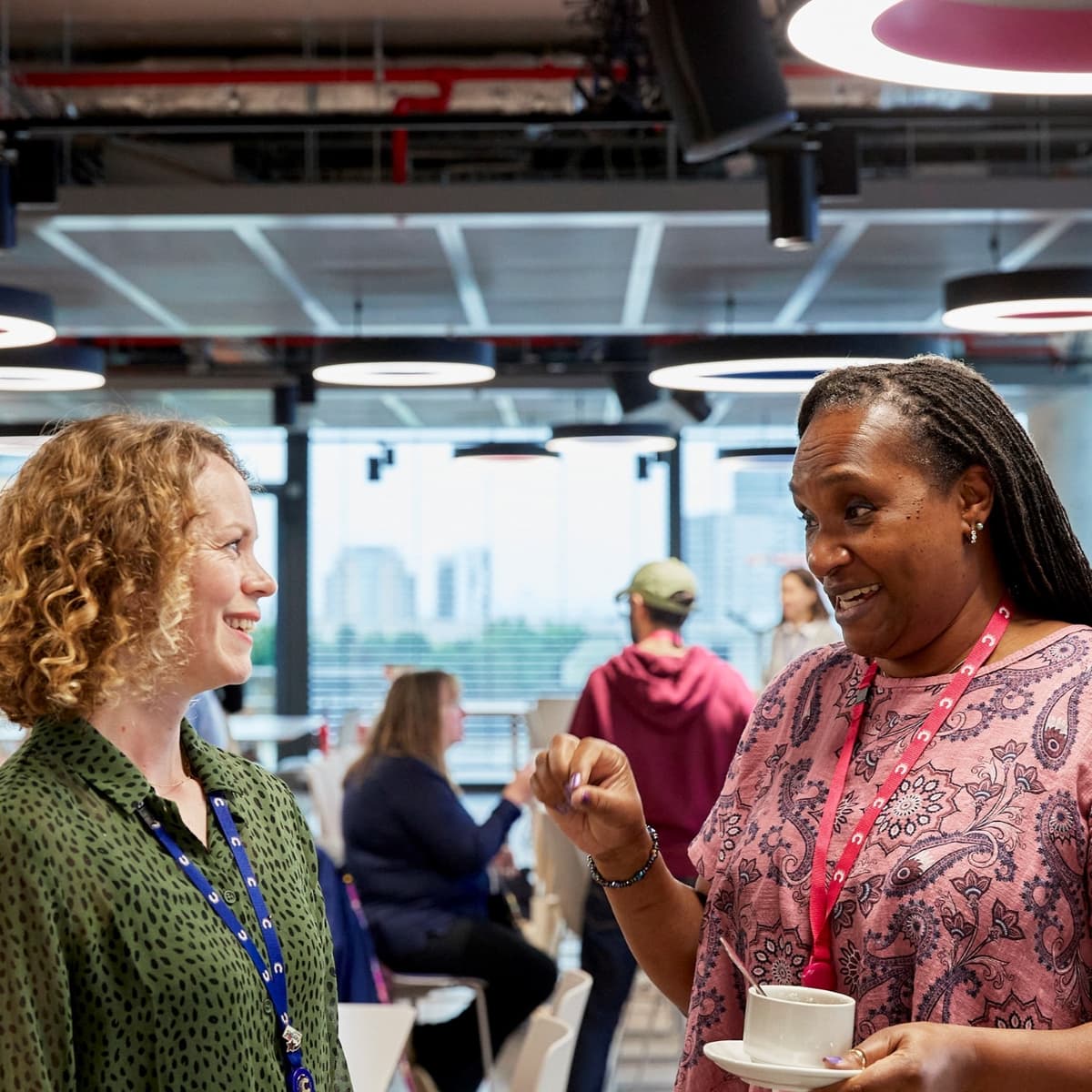
Avoid using significant dates that might affect whether people can attend the focus group. A significant date could be a religious event, a major sporting event or school holidays.
This could also mean holding your focus group after hours or on the weekend if your target audience has responsibilities during working hours. It’s good practice to shortlist a few days and times that you are available and ask the people you want to invite to select what works best for them. Try to be as flexible and accommodating as possible.
When writing surveys, interview scripts, or session plans, think about what type of questions will help you get the insights you need. Ask yourself whether people will understand the question, are able and willing to answer it, and whether the question might lead them to answer in a certain way.
Make sure you only ask people questions that are relevant to them. Ask yourself whether they have the right knowledge or experience to answer the question. If not, you may need to use filter questions to direct relevant questions to the relevant people. You can also provide additional explanations and information.
Questions should be clear and easy to understand. Don't leave room for interpretation as not everyone will understand the question in the same way. Don't be afraid to use definitions or give examples and make sure your writing is aimed at a lay audience. As part of this, avoid double-barrelled questions by making sure you only ask one question at a time.
Question order is also important to engage people and minimise bias. Order your questions in a logical sequence and start with broad questions before moving on to the more specific or sensitive questions. Think about whether the content of a question could influence how people answer subsequent questions.
Ensure people can answer your survey accurately by including ‘none of these’ or ‘other’ for multiple choice questions. Use ‘don’t know’ as an answer option for closed questions to avoid unreliable data. Include ‘not applicable’, ‘not sure’ or another similar option to provide flexibility and include ‘prefer not to say’ when necessary (e.g. for sensitive questions)
Don’t ask questions which will overstretch people’s memory as this will encourage inaccuracy, generalisations and guessing. Define the time period so that every person understands the question in the same way, ensuring answers are consistent.
Just with any working relationship, building trust is crucial. Members of trusting teams are more likely to raise new ideas, provide constructive and thoughtful feedback, ask for help and offer help.
Building trust takes time but getting to know each other, regular communication and empathy are good first steps. Setting clear expectations from the start is also important.
An expectations agreement is a two-way commitment between you and the people you involve. It sets out what ongoing behaviours and support is needed to enable everyone to succeed in their roles. We recommend developing a ‘ways of working agreement’ and then adding to this with the PPI representatives at the induction. Once agreed, this becomes an informal contract that you both sign and adhere to.
Agreeing ways of working can help you run a smooth meeting by defining what behaviours are expected. Having this in place makes it easier to moderate disruptive behaviour and ensure everyone gets a chance to contribute. You can send these in advance in their pre-read materials and give everyone the opportunity to comment or add to at the start of your meeting.
A ways of working agreement could include key values and behaviours such as:
listening to others and respecting speaking time
giving everyone an opportunity to contribute and speak
agreeing to disagree
always offering feedback in a constructive way
respecting confidentiality (of other PPI representatives or of the project)
If you appoint a chair for your steering group or advisory panel, their role is to ensure everyone behaves according to the agreed ways of working. The chair, or another nominated group member, will work with the PPI representatives to ensure they understand all relevant meeting materials.
Offer PPI representatives the opportunity to talk to the chair in advance of each meeting. This way they can ask any questions they may have about what will be covered in the meeting and feel prepared.
Becoming a PPI representative may be a new experience for those you involve. It’s important to make sure they feel like have the knowledge and skills needed to fulfil their role.
Learning needs could range from understanding more about research to presentation skills. Take the time to make sure everyone involved in your activity understands what PPI is, why it’s important and what their role is.
Check in at key points and ask if they feel there is something they would benefit from. Investing in people’s personal development will also help you build trust and their commitment to your work.
This will help create an environment where PPI representatives can contribute effectively. Soft skills like active listening and providing constructive feedback may also be areas for additional training.
Our resources and templates are meant to act as a guide. Feel free to tweak and adapt them as appropriate for your PPI activity and for the needs of your project.
Planning your involvement activities: “where to start” guide(DOCX, 25.3 KB)
Patient and public involvement: method comparison(DOCX, 29.4 KB)
Application form (DOCX, 28.8 KB)
Interview form(DOCX, 28.5 KB)
Role profile(DOCX, 53.4 KB)
Induction pack(DOCX, 26.3 KB)
Ways of working agreement(DOCX, 360 KB)
Pre-read(DOCX, 25.9 KB)
Session plan(DOCX, 27 KB)
Guide to facilitation: top tips and examples of activities(DOCX, 23.5 KB)
Ice breakers(DOCX, 21 KB)
Involvement feedback form(DOCX, 24.2 KB)

This short video for chief investigators can help you learn about involving patients and the public in clinical trials. Liz Allaway explains how their input can impact the design and delivery of a trial, and discusses the role of equality, diversity and inclusion and how you include it in clinical trials.
People affected by cancer and members of the public can be involved at any stage of the research cycle. Read our case studies to find out how researchers have successfully involved people in their work.
This is a translational case study showing how involving people affected by cancer can help you develop your research ideas and questions (PDF, 774 KB).
This is a clinical case study showing how involving people affected by cancer can help you develop your research ideas and questions (PDF, 1.24 MB).
This is a behavioural case study showing how involving people affected by cancer can help you develop your research ideas and questions (PDF, 1.1 MB).
This is a clinical case study showing how involving people affected by cancer can help you develop your research ideas, questions and applications (PDF, 734 KB).
This is a clinical case study showing how involving people affected by cancer can help you carry out your research, evaluate its impact, share and implement your results (PDF, 644 KB).
This is a clinical case study showing how involving people affected by cancer can help you develop your research ideas and questions, carry out your research, evaluate its impact, share and implement your results (PDF, 1.17 MB).
This is a clinical case study that shows how involving people affected by cancer can help you develop your research ideas, questions and applications, carry out your research, evaluate its impact, share and implement your results (PDF, 1.15 MB).

Writing in plain English or ‘lay’ can help your audience, people affected by cancer, members of the public, or professionals, understand your message exactly as you meant it.

We’ve created a toolkit with guidance, tips and templates to help you plan, deliver and evaluate your involvement activities.

Find out more about our commitments and expectations around involving people affected by cancer and members of the public in our work and in the research that we fund.